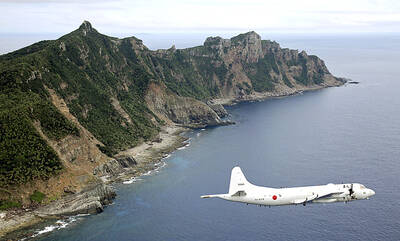Nothing holds off Hong Kong's winter chill like a hearty bowl of snake soup -- but there's a problem. Many restaurants are missing the main ingredient.
Hong Kong's snake industry is suffering a severe supply crunch after Chinese authorities banned exports during the SARS outbreak, when research suggested the respiratory illness was spread by wildlife in southern China.
The global epidemic was declared under control in July, and snakes have gotten a SARS-free bill of health, but the ban still stands. Chinese officials have told Hong Kong snake dealers it's a conservation measure following a spike in mainland consumption, but the merchants aren't so sure.
Some suspect they're victims of an overly cautious bureaucracy.
At China's State Forestry Administration, which holds final say over snake shipments, a spokesman who identified himself only by the surname Liang told a reporter by telephone he had no information on the ban.
But it's definitely felt in the former British colony, where the love of exotic food is said to include any creature whose back faces the sky.
"I don't see it served anywhere. It doesn't seem like restaurants are coming out with any promotional packages," said Vincent Li, a 26-year-old financial consultant whose company puts on snake dinners for employees every year.
China is Hong Kong's top source of snakes, shipping about 67,000 every year, and traders are having to defrost last year's leftovers and import snakes from Southeast Asia at prices up to 20 percent higher.
An average meal of snake costs HK$26 (US$3.30), about the same price as a bowl of noodle soup.
Some restaurants keep snakes coiled up in cages, ready to be killed and cooked on demand. But this season many are dropping snake from their menus.
Snake aficionados view the meat as a winter-warming food, even an aphrodisiac.
"It tastes great. It's good for your body," Li said.

MISINFORMATION: The generated content tends to adopt China’s official stance, such as ‘Taiwan is currently governed by the Chinese central government,’ the NSB said Five China-developed artificial intelligence (AI) language models exhibit cybersecurity risks and content biases, an inspection conducted by the National Security Bureau (NSB) showed. The five AI tools are: DeepSeek, Doubao (豆包), Yiyan (文心一言), Tongyi (通義千問) and Yuanbao (騰訊元寶), the bureau said, advising people to remain vigilant to protect personal data privacy and corporate business secrets. The NSB said it, in accordance with the National Intelligence Services Act (國家情報工作法), has reviewed international cybersecurity reports and intelligence, and coordinated with the Ministry of Justice Investigation Bureau and the National Police Agency’s Criminal Investigation Bureau to conduct an inspection of China-made AI language

BOOST IN CONFIDENCE: The sale sends a clear message of support for Taiwan and dispels rumors that US President Donald Trump ‘sold out’ the nation, an expert said The US government on Thursday announced a possible sale to Taiwan of fighter jet parts, which was estimated to cost about US$330 million, in a move that an expert said “sends a clear message of support for Taiwan” amid fears that Washington might be wavering in its attitude toward Taipei. It was the first announcement of an arms sale to Taiwan since US President Donald Trump returned to the White House earlier this year. The proposed package includes non-standard components, spare and repair parts, consumables and accessories, as well repair and return support for the F-16, C-130 and Indigenous Defense Fighter aircraft,

CHECKING BOUNDARIES: China wants to disrupt solidarity among democracies and test their red lines, but it is instead pushing nations to become more united, an expert said The US Department of State on Friday expressed deep concern over a Chinese public security agency’s investigation into Legislator Puma Shen (沈伯洋) for “secession.” “China’s actions threaten free speech and erode norms that have underpinned the cross-strait ‘status quo’ for decades,” a US Department of State spokesperson said. The Chongqing Municipal Public Security Bureau late last month listed Shen as “wanted” and launched an investigation into alleged “secession-related” criminal activities, including his founding of the Kuma Academy, a civil defense organization that prepares people for an invasion by China. The spokesperson said that the US was “deeply concerned” about the bureau investigating Shen

DISPUTE: A Chinese official prompted a formal protest from Tokyo by saying that ‘the dirty head that sticks itself out must be cut off,’ after Takaichi’s Taiwan remarks Four armed China Coast Guard vessels yesterday morning sailed through disputed waters controlled by Japan, amid a diplomatic spat following Japanese Prime Minister Sanae Takaichi’s comments on Taiwan. The four ships sailed around the Senkaku Islands — known as the Diaoyutai Islands (釣魚台) to Taiwan, and which Taiwan and China also claim — on Saturday before entering Japanese waters yesterday and left, the Japan Coast Guard said. The China Coast Guard said in a statement that it carried out a “rights enforcement patrol” through the waters and that it was a lawful operation. As of the end of last month,